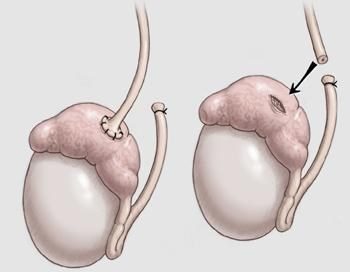Genital herpes is one of sexually transmitted infections. It is quite a common disease, as it affects around 400 million male & female persons worldwide. This ailment leads to painful herpetic sores occurrence. Below we’ll present you the most important information about the herpes, including its causes, treatment, and prevention.
Types of Herpes
There are 2 types of the herpes virus:
- oral type (type 1);
- genital type (type 2).
The most typical symptoms of oral disease type caused by HSV-1 virus are sores around lips & mouth. They can appear if the immune system of the person having the virus in his/her body is weakened, for example, after hypothermia. The second type of the virus (HSV-2) is more unpleasant and dangerous as it affects genitals. However, HSV-1 virus typical for lips & mouth localization of may affect genitals (for example, after oral sex). Moreover, HSV-1 very often causes genital lesions at the present time. Likewise, HSV-2 may cause cold sores on the face.
Causes of Genital Herpes
The cause of the ailment is getting the virus infection from another person. The virus is transmitted during sex, including oral & anal. It easily passes through moistened skin and enters the body. Sometimes infection contamination occurs through non-sexual contact, such as contact with the skin or eyes. The infection is not usually transmitted through household items because the virus quickly dies if it is outside the human body.
If an individual has sores/blisters, the risk of infection contamination increases significantly, however you may get infected from a person without visible symptoms of the ailment. After infecting the body, the herpes may manifest itself but not necessary directly after transmitting the virus. The disease manifestations are called recurrences (outbreaks). The possible triggers of outbreaks include:
- frictions in the genital area in the course of sex;
- colds, other virus infections;
- excess consumption of alcoholic drinks;
- excess ultraviolet light influence;
- weakened immunity, for instance, after anti-cancer chemotherapy.
Symptoms of Genital Herpes in Males & Females
A lot of people having HSV-2 in the body do not know about their disease. The infection is lifelong. It features remission periods and outbreaks. If symptoms emerge soon after an individual catch the infection, they are usually severe.
The initial signs of the outbreak of the disease imply the appearance of severe itching, soreness and burning sensation in the genitals area (on the penis or vagina). Besides, the virus can affect buttocks, thighs, and the anus area. After a while rashes are formed on these places.
 Herpetic sores are located separately or can be grouped. They have the form of bubbles up to 4 mm in diameter. They are located on a swollen and reddened base. The appearance of rashes is accompanied by a slight fever, malaise & headache. Inguinal lymph nodes become larger and can be painful (the so-called inguinal lymphadenopathy).
Herpetic sores are located separately or can be grouped. They have the form of bubbles up to 4 mm in diameter. They are located on a swollen and reddened base. The appearance of rashes is accompanied by a slight fever, malaise & headache. Inguinal lymph nodes become larger and can be painful (the so-called inguinal lymphadenopathy).
After a few days, the sores open up by themselves, forming erosions with uneven outlines. At this time, patients complain of severe itching, burning sensation in the place of erosion, and pronounced soreness that increases with sexual intercourse (note that sex is prohibited during this period). During the first few days, new rashes are formed, and the virus is actively secreted from them.
It’s also worth noting that according to the research by Gupta R. (2007) the ailment is the prevailing cause of genital ulcers in people.
How to Diagnose the Disease?
A healthcare professional can diagnose the ailment by examining lesions in the genital area visually. Also, laboratory tests may be done, however, they aren’t necessary in all cases. Blood tests may help to control the ailment before its recurrences. See you doctor if, in your opinion, you could get infected with genital herpes even if you don’t suffer from any symptoms at the moment.
How to Treat the Disease?
Unfortunately, the disease is incurable. Persons suffering from it can only treat symptoms or prevent them. The best remedy for the disease recurrences is strong immunity. Healthy immune system suppresses the activity of the herpesvirus, forcing it to remain asleep for many years. Frequent recurrences of herpetic infection are a signal of weak immunity. In such cases, doctors recommend taking antiviral drugs for herpes.
The main purposes of treatment of herpes with drugs:
- reducing the number of relapses;
- prolonging the stage of remission for the longest possible period;
- helping the body suppress the activity of the virus;
- stopping the infection at the beginning of its progression, in order to reduce the period of the course of the disease.
 For example, an effective drug for the treatment of genital herpes is Valtrex. The main agent of the drug is valacyclovir, an improved analogue of acyclovir. Valacyclovir is more effective against herpes. Valtrex quickly blocks the multiplication of the virus, accelerates the healing of sores, and reduces the intensity of pain.
For example, an effective drug for the treatment of genital herpes is Valtrex. The main agent of the drug is valacyclovir, an improved analogue of acyclovir. Valacyclovir is more effective against herpes. Valtrex quickly blocks the multiplication of the virus, accelerates the healing of sores, and reduces the intensity of pain.
Treatment of herpes with Valtrex in adults includes 2 tablets 2 times a day. Children under 12 are not recommended to take the drug (due to the lack of appropriate clinic researches).
As for pregnant women, the decision to prescribe the drug can only be taken by a doctor, since a small number of women participated in the clinical safety testing of the drug. Therefore, it is impossible to make reliable and definite conclusions about the safety of valacyclovir during pregnancy.
Other drugs for treating the disease include, among others, Zovirax (based on acyclovir) and Famvir (famciclovir main agent). Usually the meds are taken orally. In severe cases, they may be administered intravenously but such situations are very rare. Topical meds (creams, ointments) with local action are also applicable but due to the less effectiveness they aren’t commonly used.
It should be noted that according to the study by Groves MJ. (2016), individuals with HSV-2 have a higher risk of being infected with HIV. Due to incurability of the ailment and increased risk of HIV acquiring, it is very important to take preventing measures against the herpes. Below you can learn how to prevent this disease.
Prevention of Genital Herpes
Here are some tips on how to cut the risk of getting the disease:
- use a latex condom each time you have sexual contact;
- ask the partner about his/her sexual relationships in the past
- also ask the partner about having sexually transmitted ailments;
- do not have sex with a person who has sores on the genital area;
- ask your partner to check for venereal infections;
- don’t receive oral sex from a person having sores around the lips.
 If you’re a carrier of genital herpes avoid sex of any type until any blisters/ulcers in the area of your genitals have gone. It is better not to have sexual relationships if symptoms of the genital herpes are present, as at this time the ailment is very contagious. Always have sex of any type with a condom.
If you’re a carrier of genital herpes avoid sex of any type until any blisters/ulcers in the area of your genitals have gone. It is better not to have sexual relationships if symptoms of the genital herpes are present, as at this time the ailment is very contagious. Always have sex of any type with a condom.
However, the condom doesn’t guarantee full protection, as the virus may be present around the anus and be transferred during sexual contact.
References
1: Groves MJ. Genital Herpes: A Review. Am Fam Physician. 2016 Jun 1;93(11):928-34. Review. PubMed PMID: 27281837.





